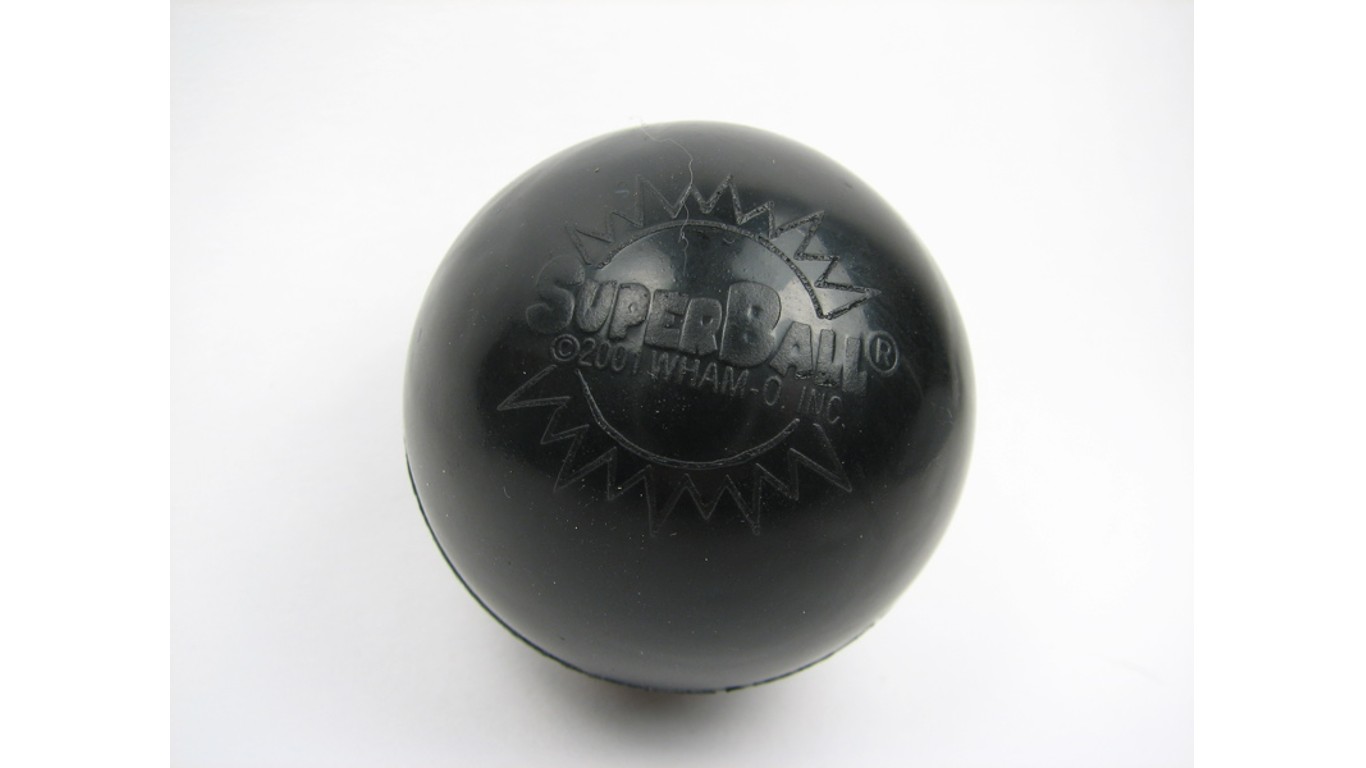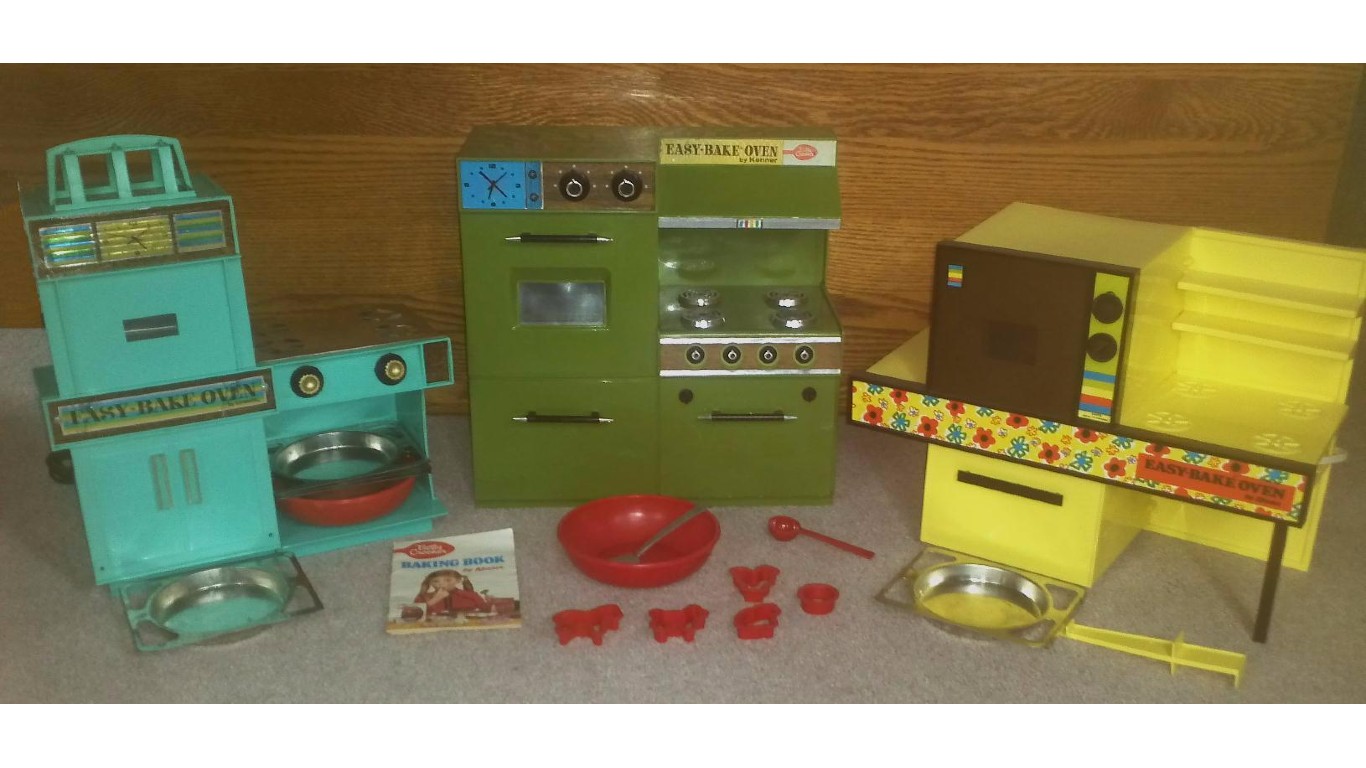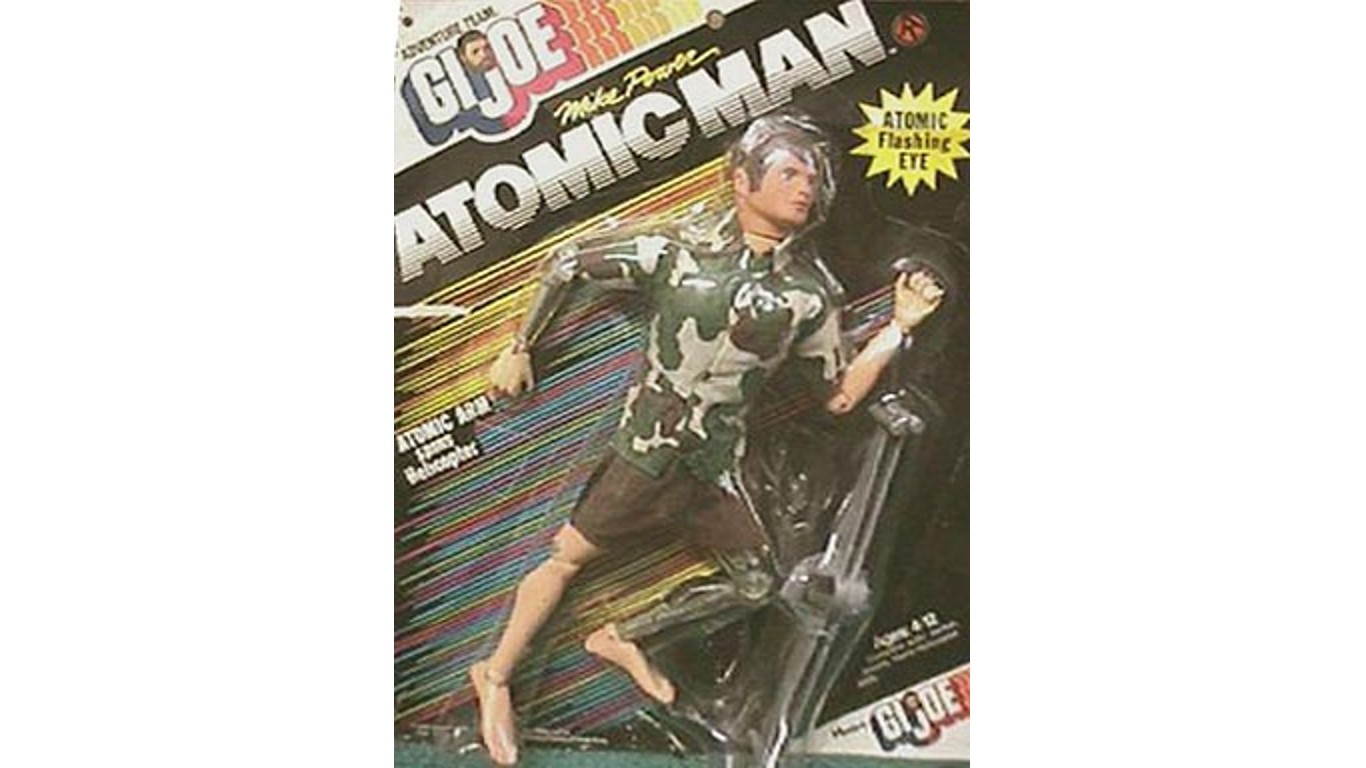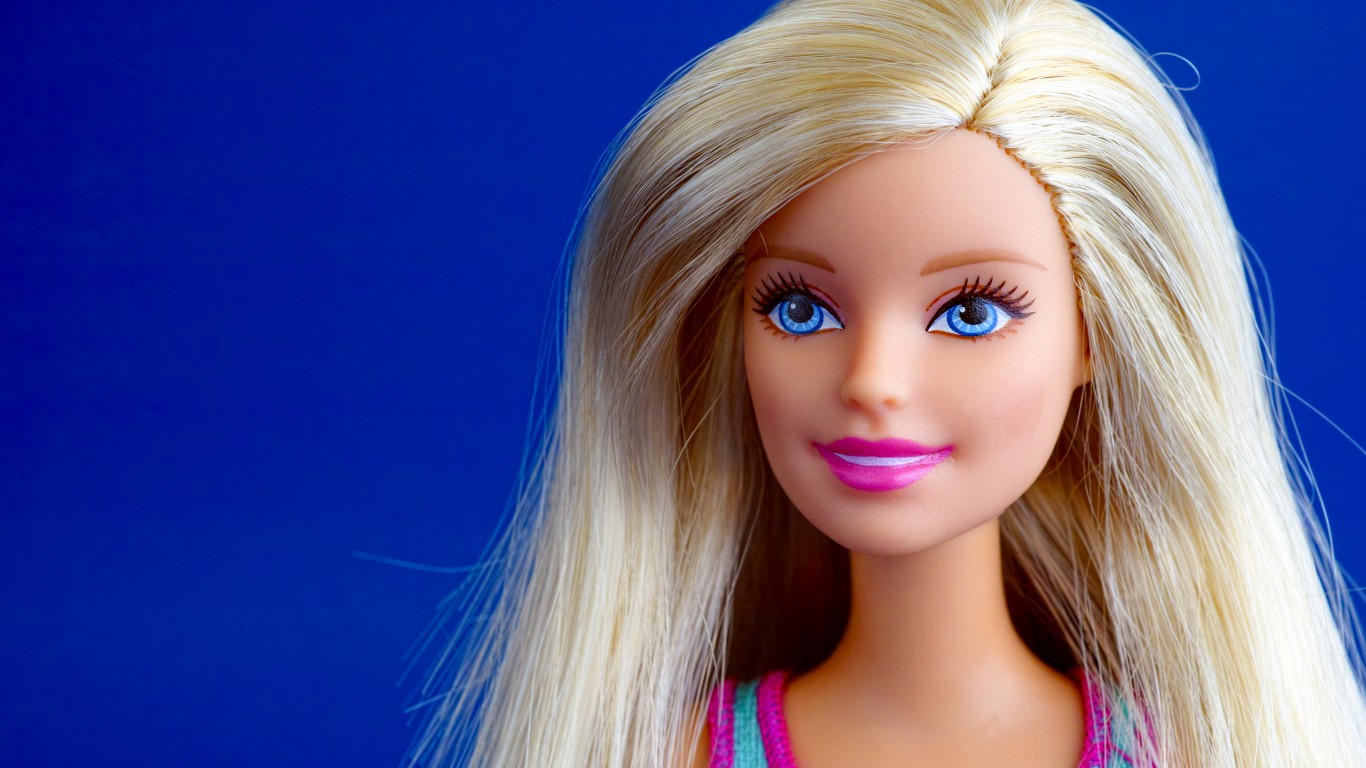
Tamagotchis, POGs, and Furbies are just a few of the short-lived toy fads that have come and gone in the last 30 years. Some toys, however, first targeted at Baby Boomers, had a simplicity and lasting appeal that has kept them on holiday wish lists for over 50 years, and a number of them made our list of 21 of the most popular gifts of the century.
To compile a list of 15 of the most popular toys when Baby Boomers – those born between 1946 and 1964 – were kids, 24/7 Tempo consulted the archives of companies such as Hasbro; data curated by The Strong National Museum of Play; encyclopedia sources such as Britannica; and media outlets including Reader’s Digest, The New York Times, Time, Good Housekeeping, and Smithsonian. 24/7 Tempo exercised editorial discretion in making the final selection where appropriate.
Many toys of the Boomer generation remain staples to this day; from exercise toys like Hula Hoops and Frisbees, to iconic dolls and action figures including Barbie and G.I. Joe. Some toys that were introduced in the ‘50s and ‘60s experienced a lull in sales in later decades but have been reintroduced and are still available today.
While major toy companies including Wham-O, Mattel, and Hasbro dominate the list of the top toy gifts from when boomers were kids, many of the toys were invented by individuals who then sold their idea or patent to a larger manufacturer. Scrabble, invented by an out-of-work architect named Alfred Mosher Butts, is now sold by Hasbro and remains one of the best-selling board games in America.
Magic 8 Ball
> Made by: Mattel
Invented in 1946 and sold as a spherical paperweight, this novelty fortune-telling device became popular with both adults and children when it was redesigned in 1950 to look like a billiard ball.
[in-text-ad]
Colorforms
> Made by: Harry and Patricia Kislevitz
These creative vinyl art stickers come in themed sets and can be peeled off and reused indefinitely. While the original sets included geometric shapes and plain backgrounds, subsequent models introduced likenesses of popular characters and interactive backgrounds.
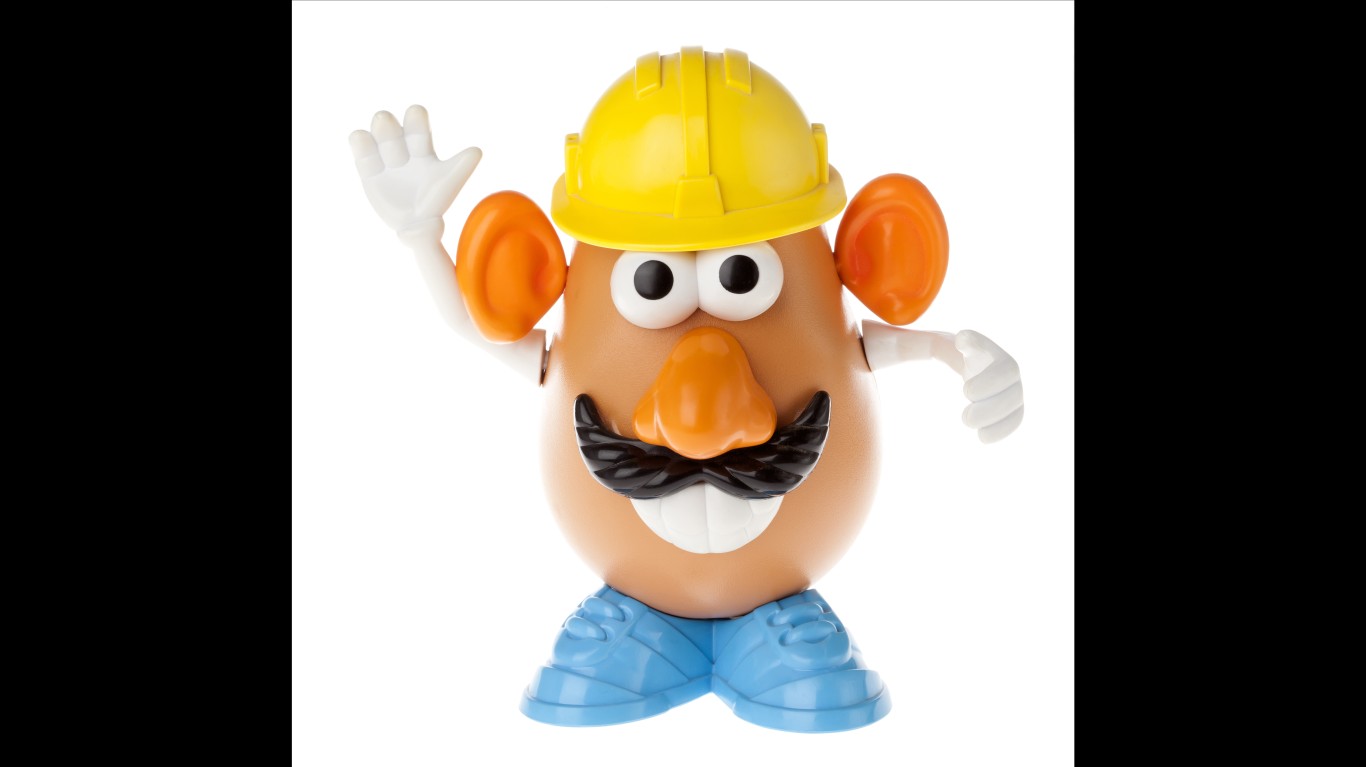
Mr. Potato Head
> Made by: Hasbro
Originally sold as a set of accessories to decorate a real (not-included) potato with, this creative toy eventually came to include a plastic potato body. In 1952, a Mr. Potato Head ad became the first television commercial aimed directly at children. Mrs. Potato Head was later introduced, and the couple has appeared regularly in the Toy Story franchise.
Matchbox cars
> Made by: Mattel
Introduced by the British die-casting company Lesney, Matchbox became the best-selling brand of miniature die-cast car models in the world by 1968, and inspired the American Hot Wheels toy car line. Matchbox was bought by Hot Wheels’ parent company Mattel in 1997.
[in-text-ad-2]
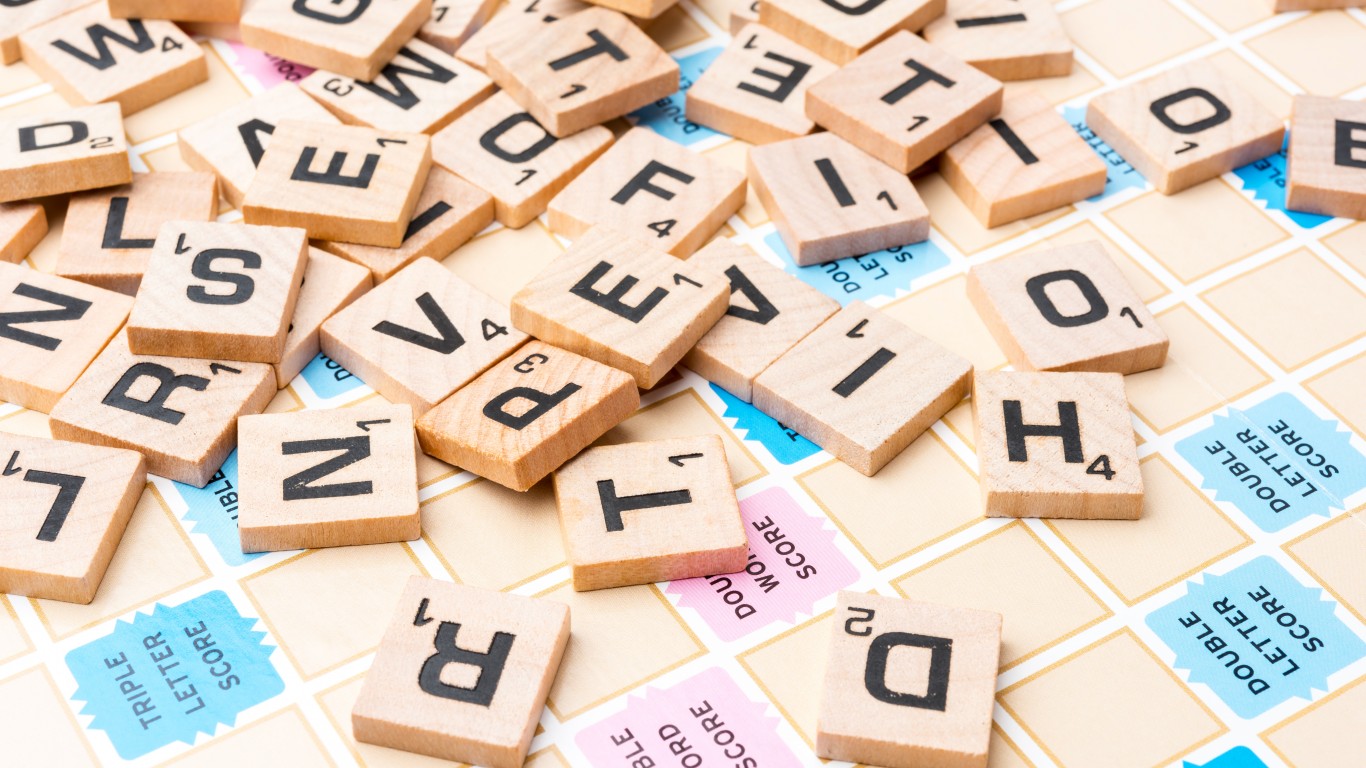
Scrabble
> Made by: Hasbro
Invented in 1938 and rejected by large game manufacturers, Scrabble finally took hold in 1952 after Macy’s president Jack Straus played the game and decided to stock it in his stores. The family-favorite word game has sold well ever since.
Silly Putty
> Made by: Crayola
During World War II, an engineer was attempting to create a synthetic rubber compound from silicone but instead created a bouncy, stretchy substance that his colleagues loved to play with. The substance was otherwise useless until a toy store owner started selling it. It became a hit at the 1950 International Toy Fair.
[in-text-ad]
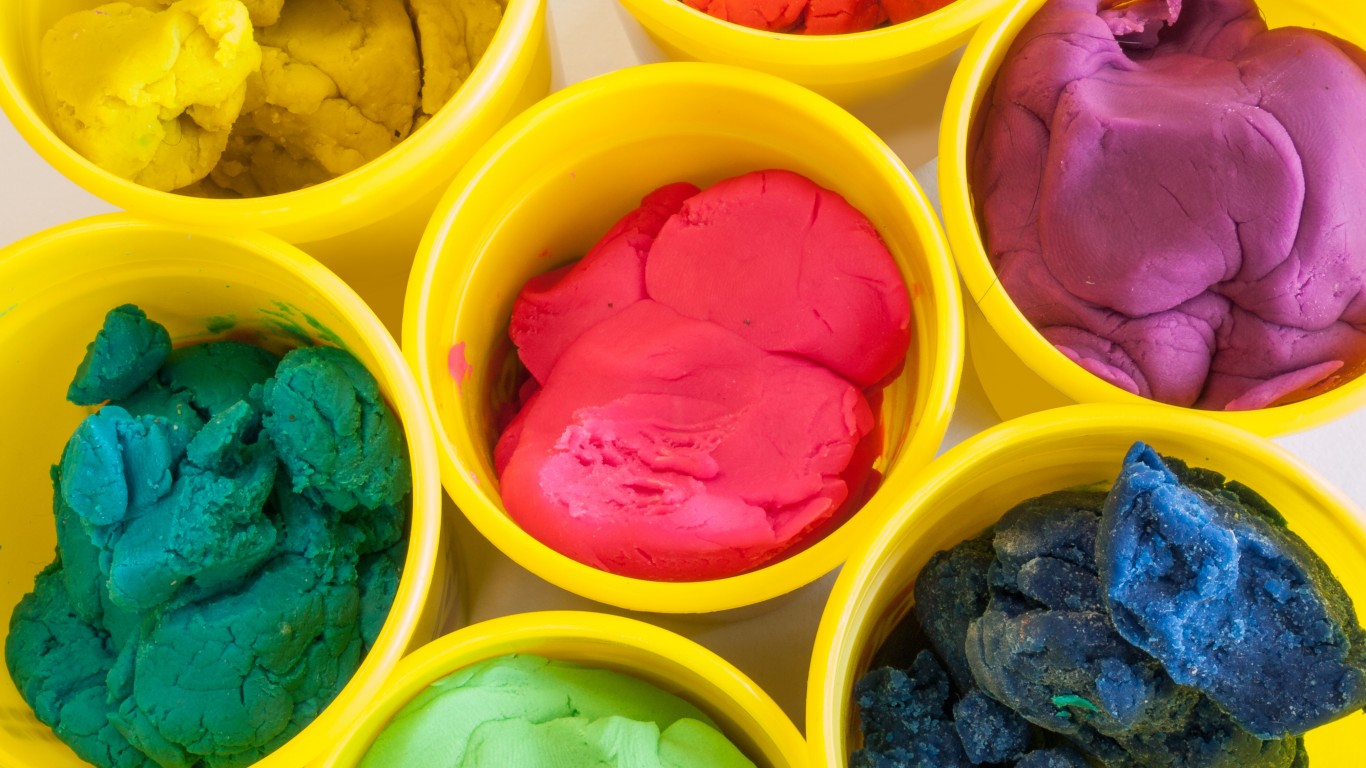
Play-Doh
> Made by: Kutol/Hasbro
Originally invented as a wallpaper cleaner in the 1930s, this moldable dough took off as a children’s modeling clay after a preschool teacher caught wind of it. Over three billion cans of Play-Doh have been sold since 1956.
Frisbee
> Made by: Wham-O
While throwing-discs have been a phenomenon for centuries, toy company Wham-O manufactured their first ones in 1957, calling them Frisbees after the Frisbie brand pie tins that college students were accustomed to tossing to one another for sport. The company had sold over 100 million Frisbees by 1977.

Hula Hoop
> Made by: Wham-O
Another toy with ancient roots, Hula Hoops were also eventually marketed by Wham-O, who purchased the American rights to manufacture them after the Australian department store Toltoys moved hundreds of thousands of them. Wham-O is estimated to have sold 100 million Hula Hoops in the first two years.
[in-text-ad-2]
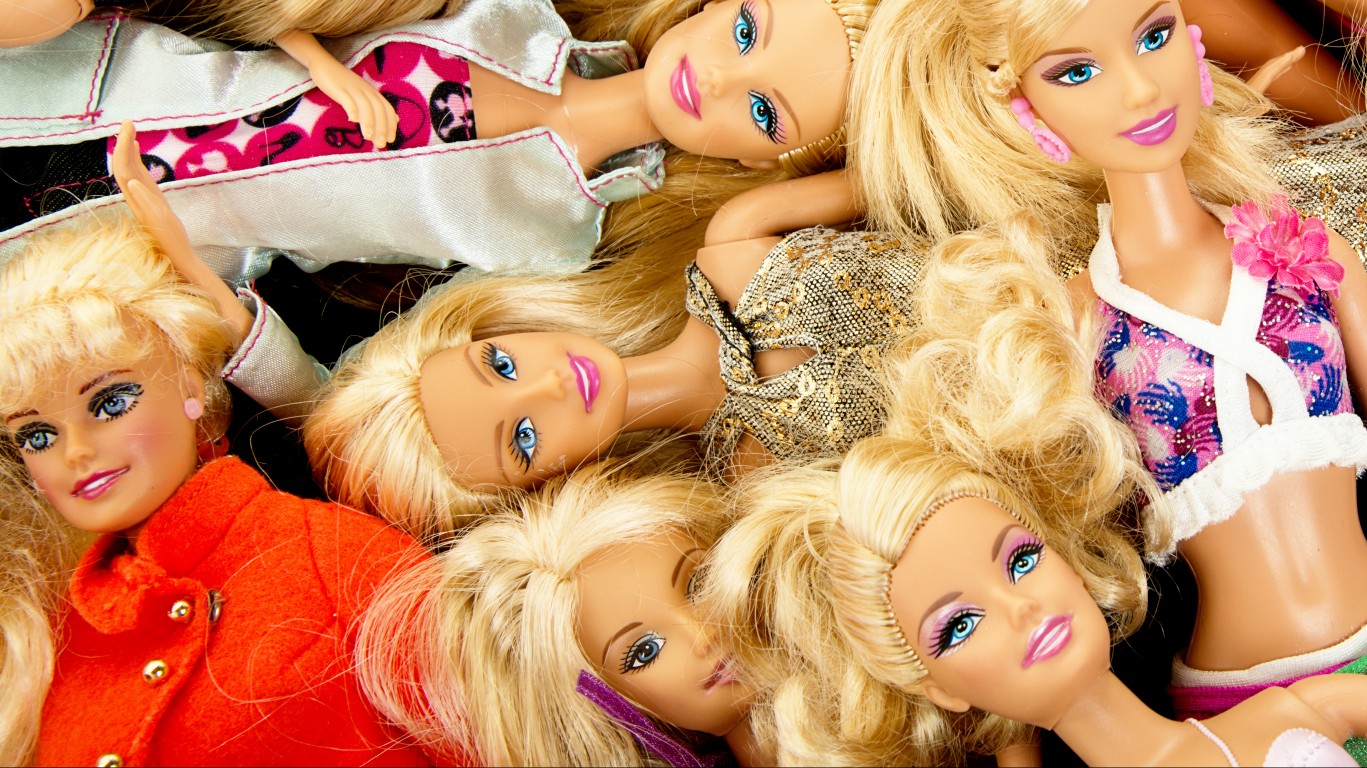
Barbie
> Made by: Mattel
Launched in 1959, this 11-inch plastic doll, officially named Barbara Millicent Roberts, was the first American children’s doll with adult features. Designed by Ruth Handler, co-owner of Mattel, Barbie was intended to allow young girls to imagine their futures. Barbie dolls produced since 1959 have portrayed over 200 different career paths.
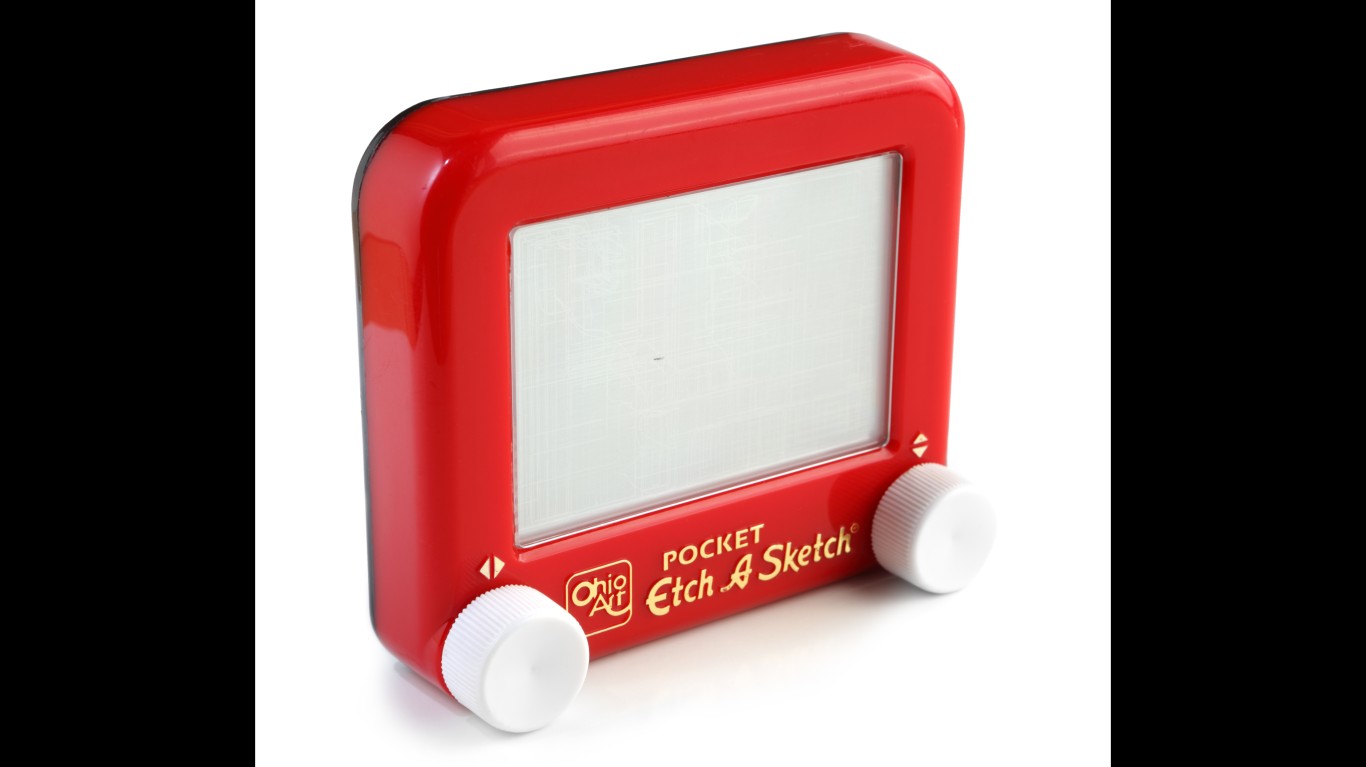
Etch A Sketch
> Made by: Ohio Art Company
Initially called Magic Screen, this erasable drawing board utilizes two dials and aluminum powder, allowing users to create images then clear the board with a few shakes. The art toy was released in 1960 and sold over 600,000 units in its first year.
[in-text-ad]
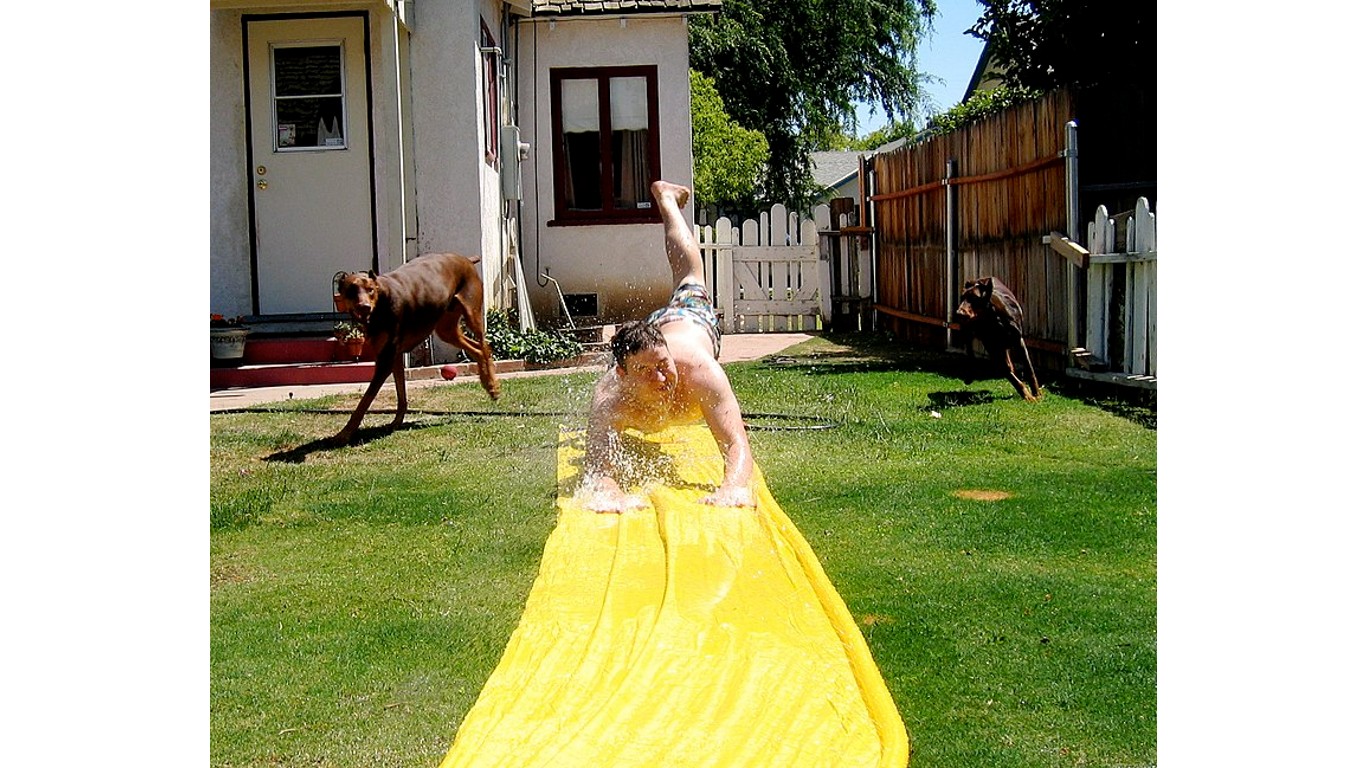
Slip ‘N Slide
> Made by: Wham-O
Invented by boat upholsterer Robert Carrier after he saw his son sliding down their wet concrete driveway for fun, this home water slide was quickly picked up by Wham-O and released at the New York Toy Fair in 1961.
Super Ball
> Made by: Wham-O
After a chemical engineer invented an extremely elastic and bouncy substance that he called Zectron, he patented the Super Ball, which can easily bounce over a multi-story building when thrown onto a hard surface. Wham-O purchased the rights and produced 170,000 Super Balls a day at the height of their popularity.
Easy Bake Oven
> Made by: Hasbro
Utilizing a 100-watt light bulb, this child-safe oven released in 1963 allowed young people to hone their baking skills. It was an instant hit and sold out during its first holiday season. Many models have been released through the years, and the Easy Bake remains a popular gift.
[in-text-ad-2]
G.I. Joe
> Made by: Milton Bradley/Hasbro
Hasbro’s biggest hit at the time of its release, G.I. Joe was the world’s first “action figure,” outfitted with movable joints, allowing the toy to be positioned in numerous fighting stances. The first release included four figures, one representing each branch of the U.S. armed forces.
100 Million Americans Are Missing This Crucial Retirement Tool
The thought of burdening your family with a financial disaster is most Americans’ nightmare. However, recent studies show that over 100 million Americans still don’t have proper life insurance in the event they pass away.
Life insurance can bring peace of mind – ensuring your loved ones are safeguarded against unforeseen expenses and debts. With premiums often lower than expected and a variety of plans tailored to different life stages and health conditions, securing a policy is more accessible than ever.
A quick, no-obligation quote can provide valuable insight into what’s available and what might best suit your family’s needs. Life insurance is a simple step you can take today to help secure peace of mind for your loved ones tomorrow.
Click here to learn how to get a quote in just a few minutes.
Thank you for reading! Have some feedback for us?
Contact the 24/7 Wall St. editorial team.
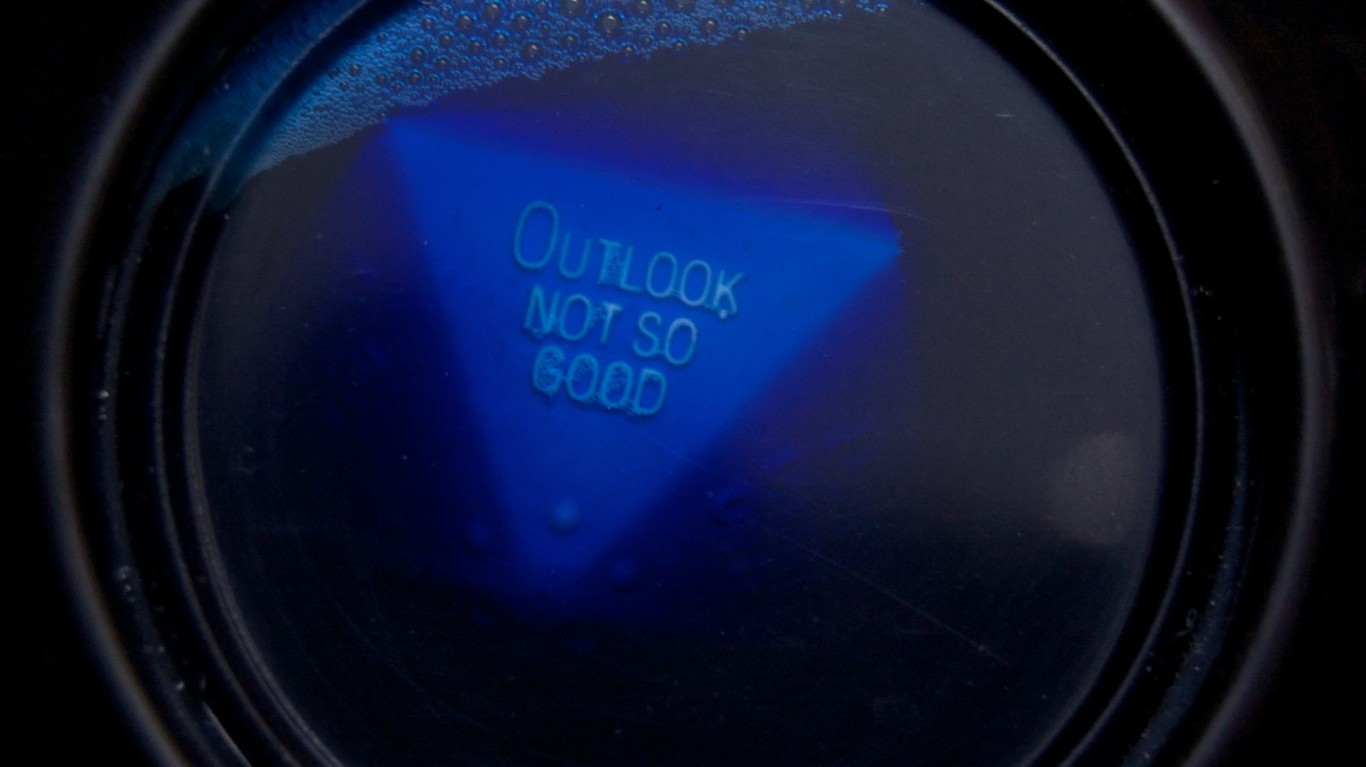
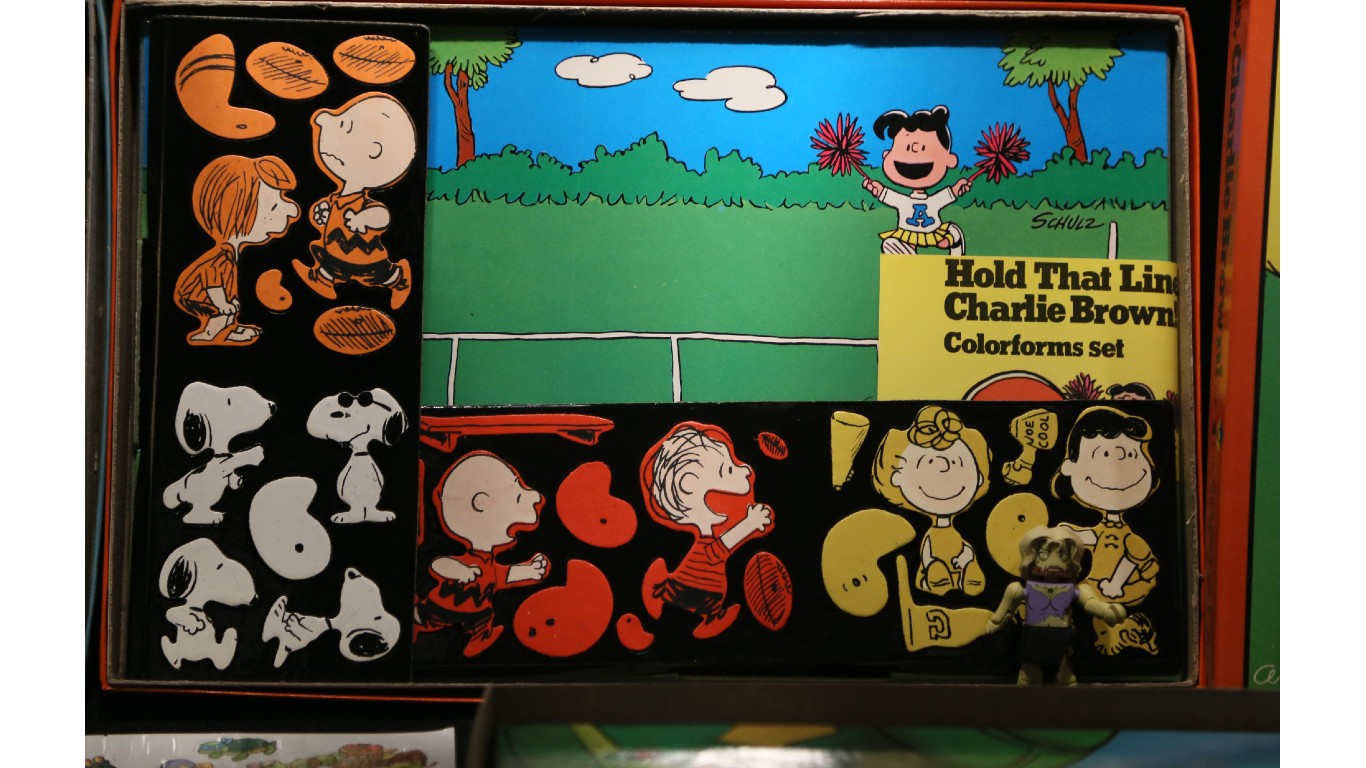
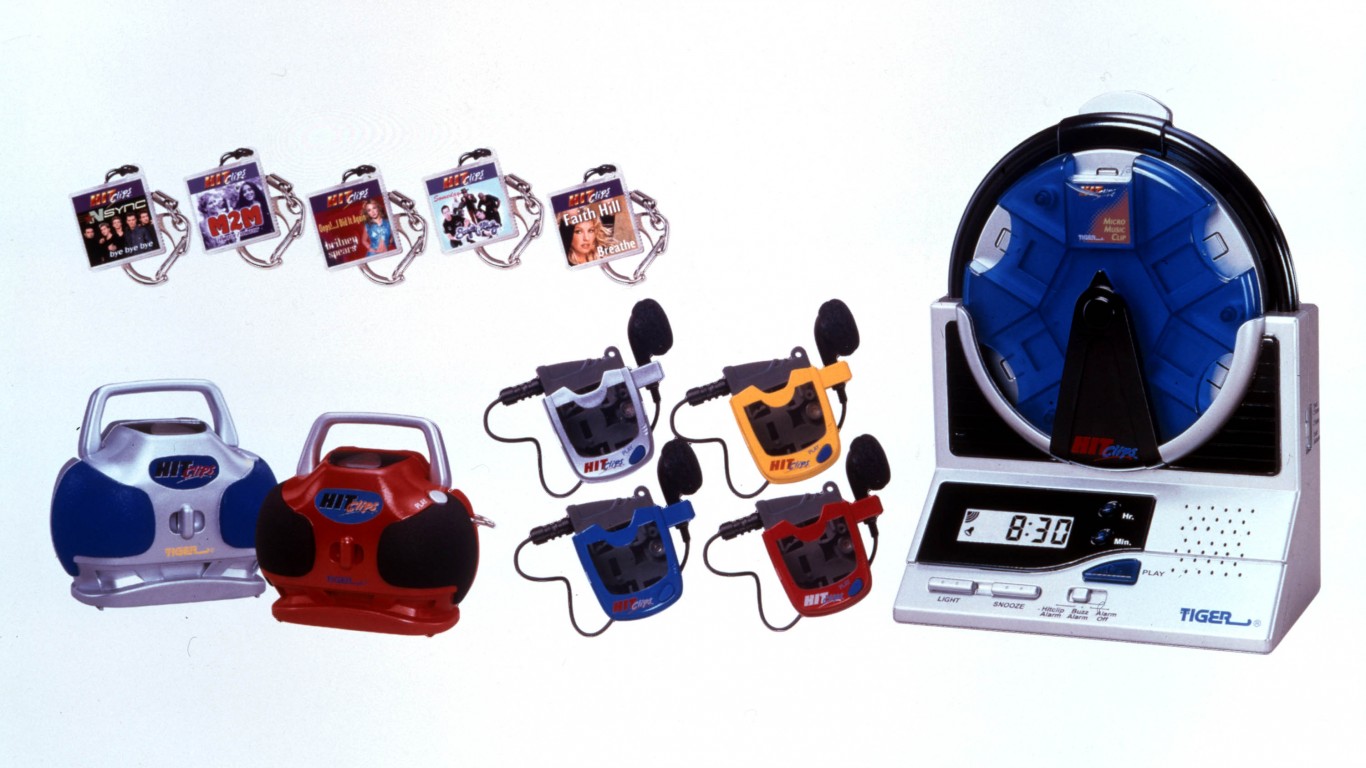 24/7 Wall St.
24/7 Wall St.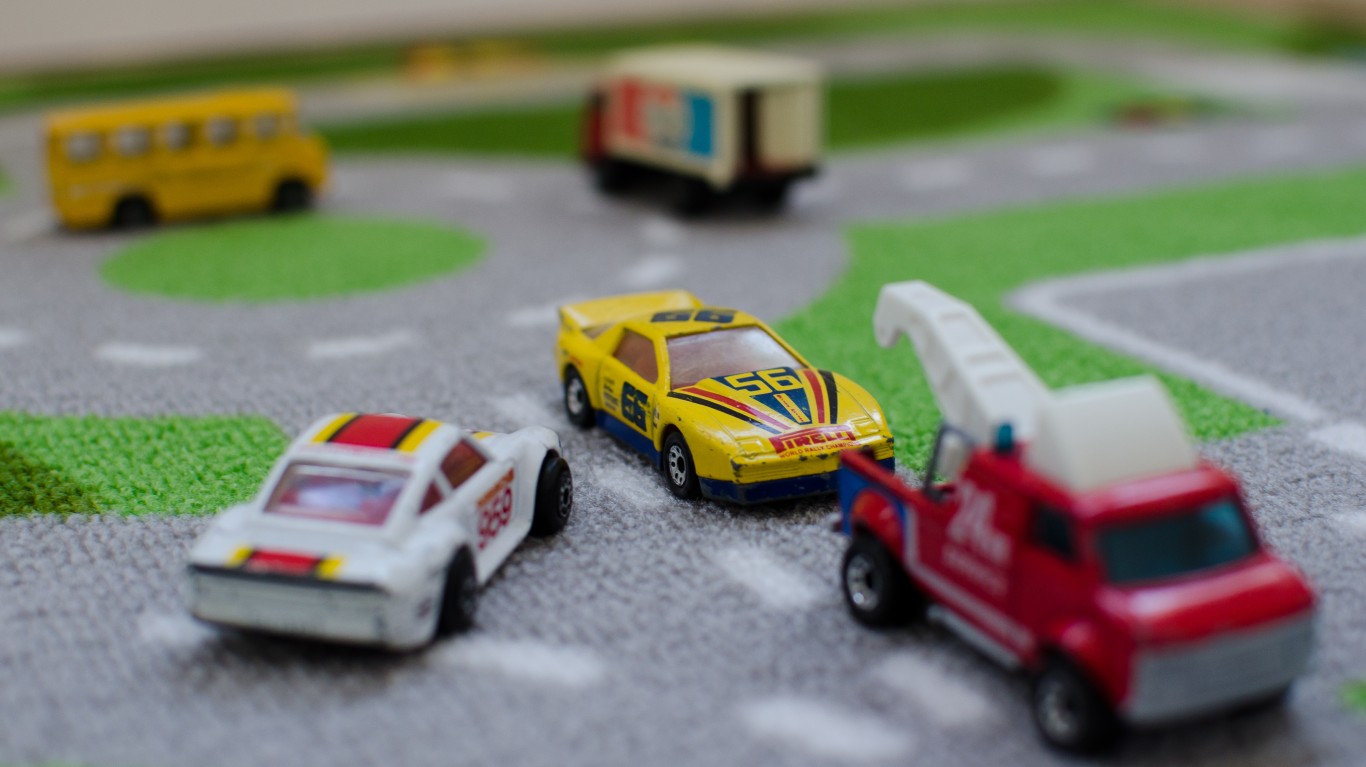
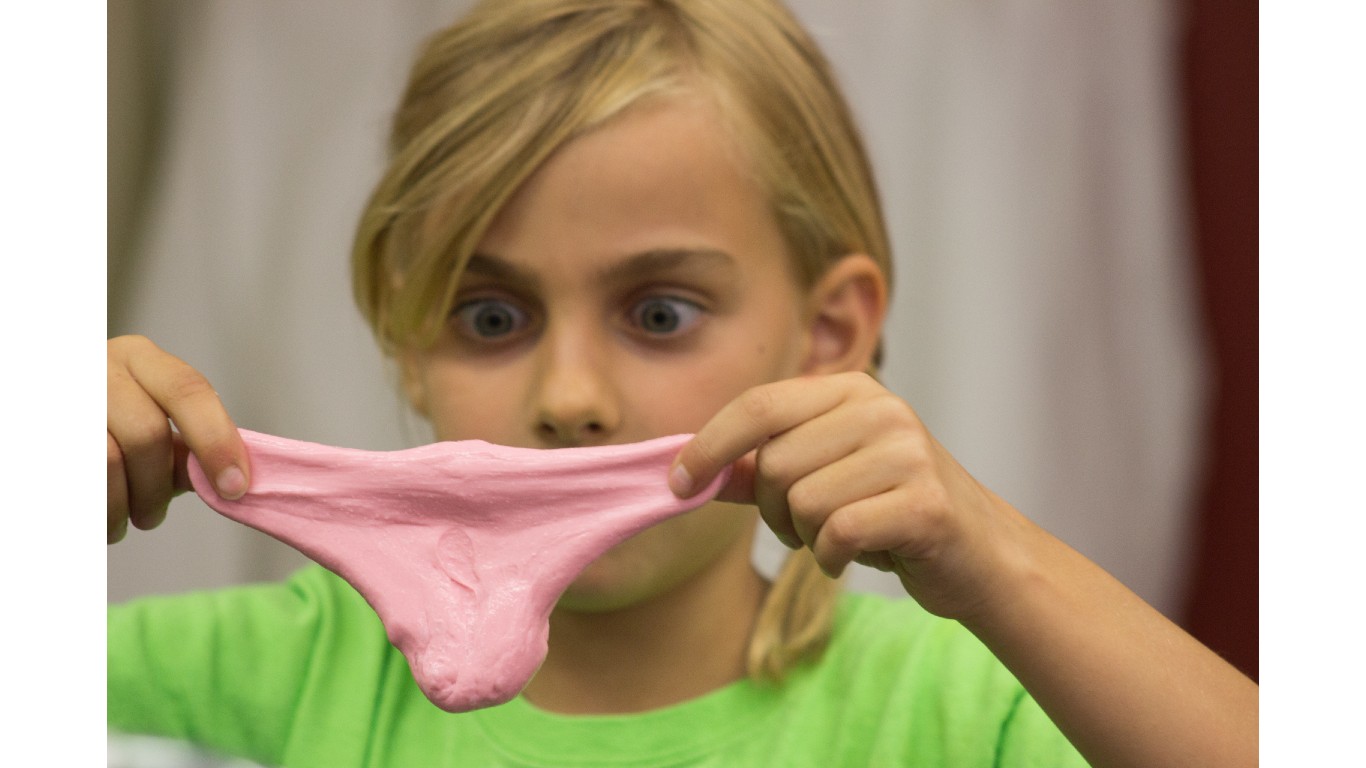
 24/7 Wall St.
24/7 Wall St.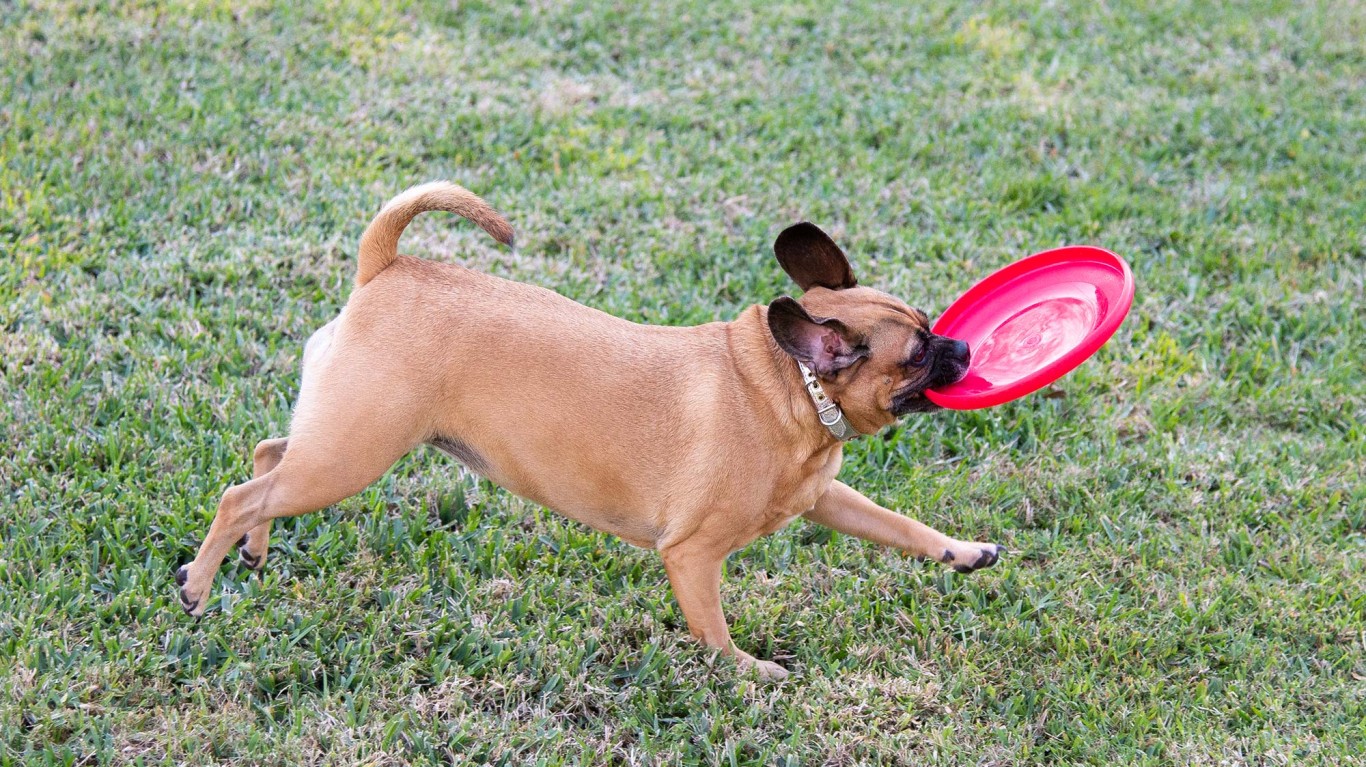
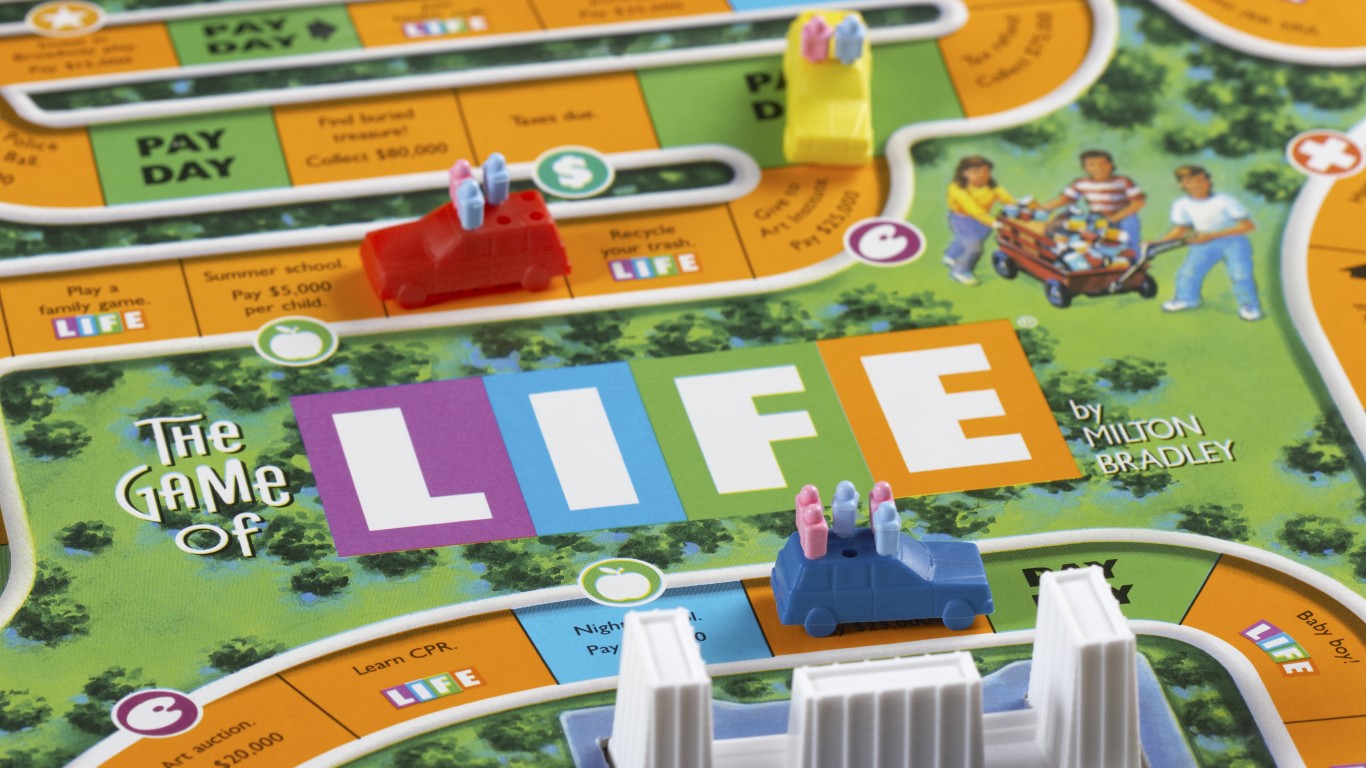 24/7 Wall St.
24/7 Wall St.